Object Re-Identification
Object Re-Identification (Re-ID) refers to the task of recognizing and matching objects across different camera views or time frames. It addresses the challenge of identifying a object in one image and finding the same object in another image captured by a different camera, often under varying lighting, angles, and backgrounds. Re-ID plays a crucial role in applications such as surveillance, security, and smart city technologies, enhancing the ability to track and monitor individuals in real-time.
We construct datasets and explore different data modalities, for various Re-ID tasks such as Person Re-ID and Wildlife Re-ID. We also discuss privacy concerns in Re-ID settings.
Highlight: Survey and Baseline

We provides a comprehensive review and in-depth analysis of the Transformer-based Re-ID. In categorizing existing works into Image/Video-Based Re-ID, Re-ID with limited data/annotations, Cross-Modal Re-ID, and Special Re-ID Scenarios, we thoroughly elucidate the advantages demonstrated by the Transformer in addressing a multitude of challenges across these domains. Besides, we propose a new Transformer baseline, UntransReID, achieving state-of-the-art performance on both single-/cross modal tasks. Besides, this survey also covers a wide range of Re-ID research objects, including progress in animal Re-ID. Given the diversity of species in animal Re-ID, we devise a standardized experimental benchmark and conduct extensive experiments to explore the applicability of Transformer for this task to facilitate future research.
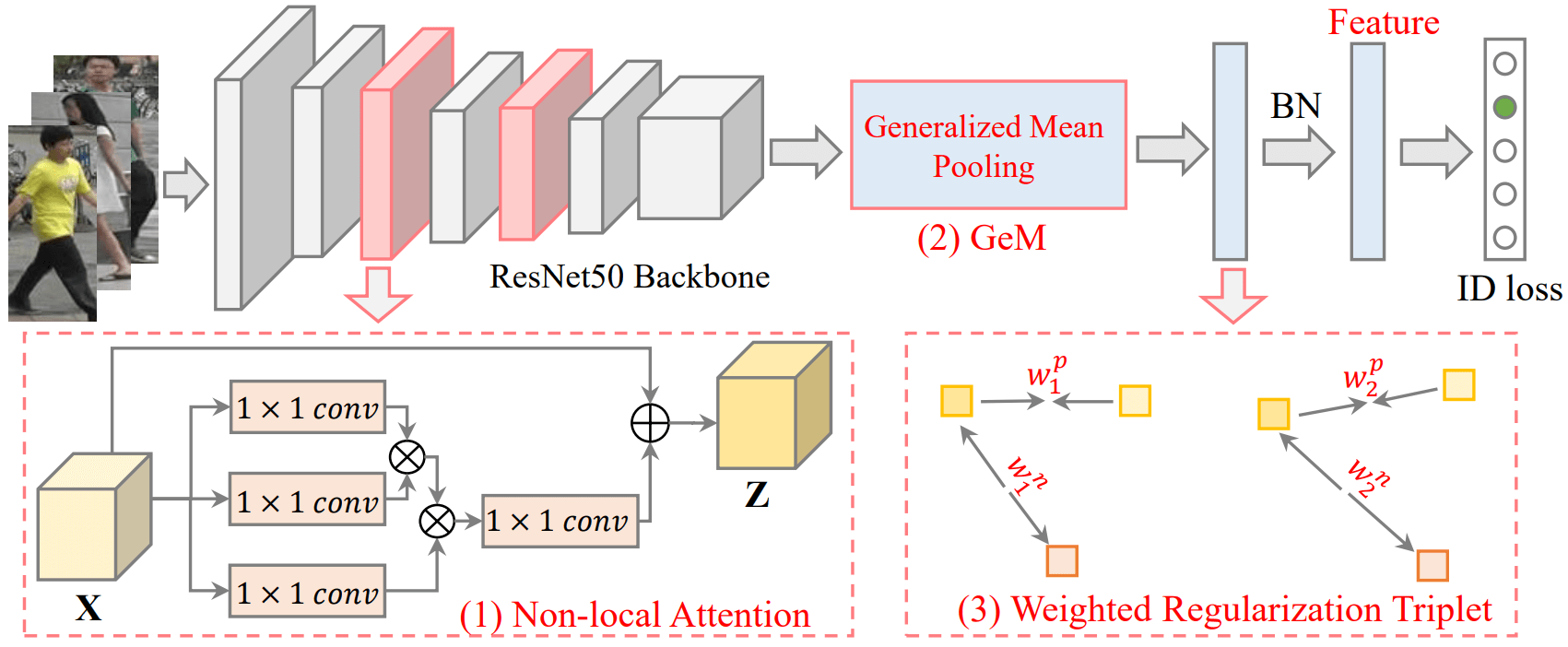
We build: (1) A comprehensive survey with in-depth analysis for closed- and open-world person Re-ID in recent years (2016-2020). (2) A new evaluation metric, namely mean Inverse Negative Penalty (mINP), which measures the ability to find the hardest correct match. (3) A new AGW baseline with non-local Attention block, Generalized mean pooling and Weighted regularization triplet. It acheieves competitive performance on FOUR challenging Re-ID tasks, including single-modality image-based Re-ID, video-based Re-ID, Partial Re-ID and cross-modality Re-ID.
Highlight: Wildlife Re-ID
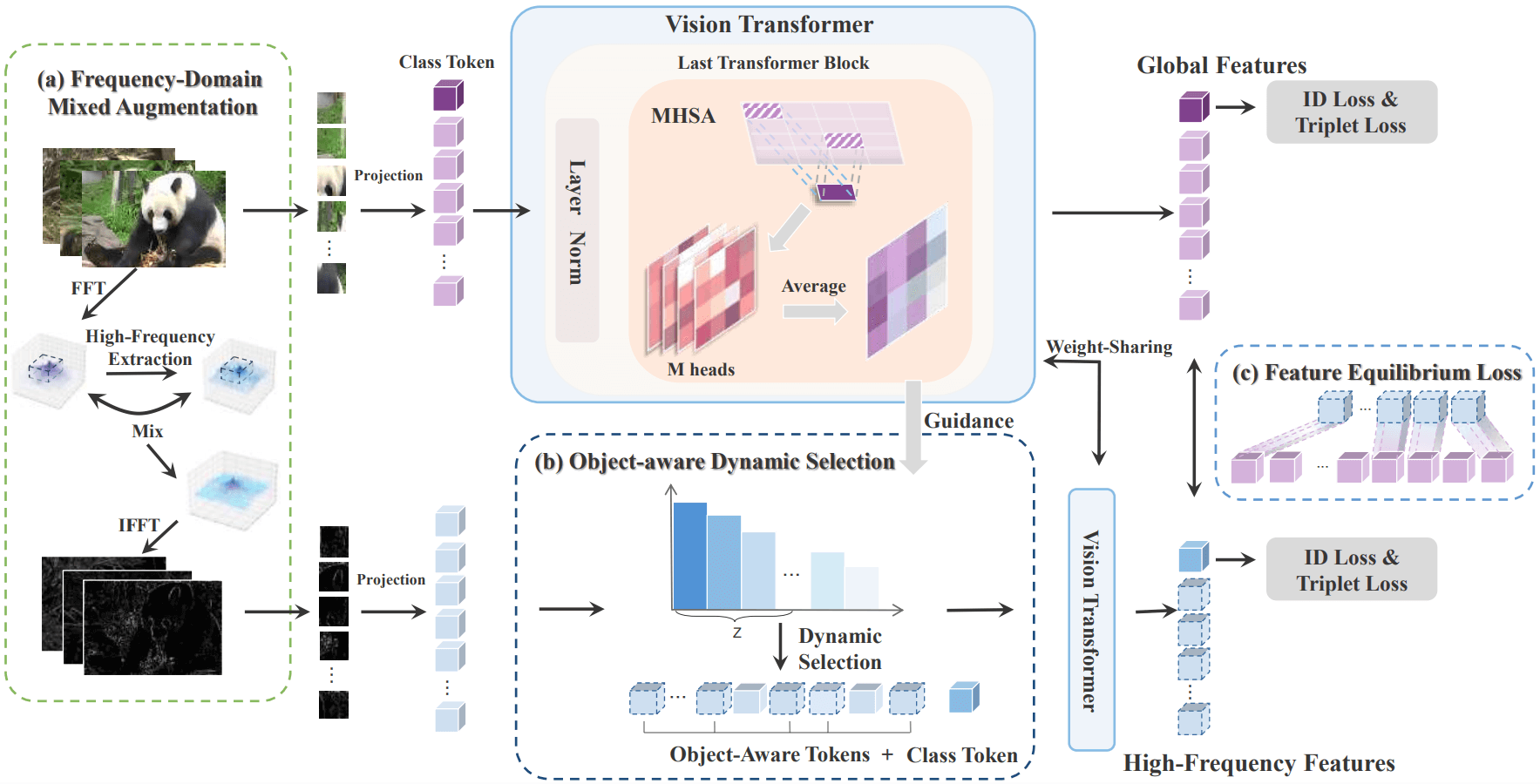
We present a unified, multi-species general framework for wildlife ReID. Given that high-frequency information is a consistent representation of unique features in various species, significantly aiding in identifying contours and details such as fur textures, we propose the Adaptive High-Frequency Transformer model with the goal of enhancing high-frequency information learning. To mitigate the inevitable high-frequency interference in the wilderness environment, we introduce an object-aware high-frequency selection strategy to adaptively capture more valuable high-frequency components. Notably, we unify the experimental settings of multiple wildlife datasets for ReID, achieving superior performance over state-of-the-art ReID methods.
Highlight: Multimodal Re-ID
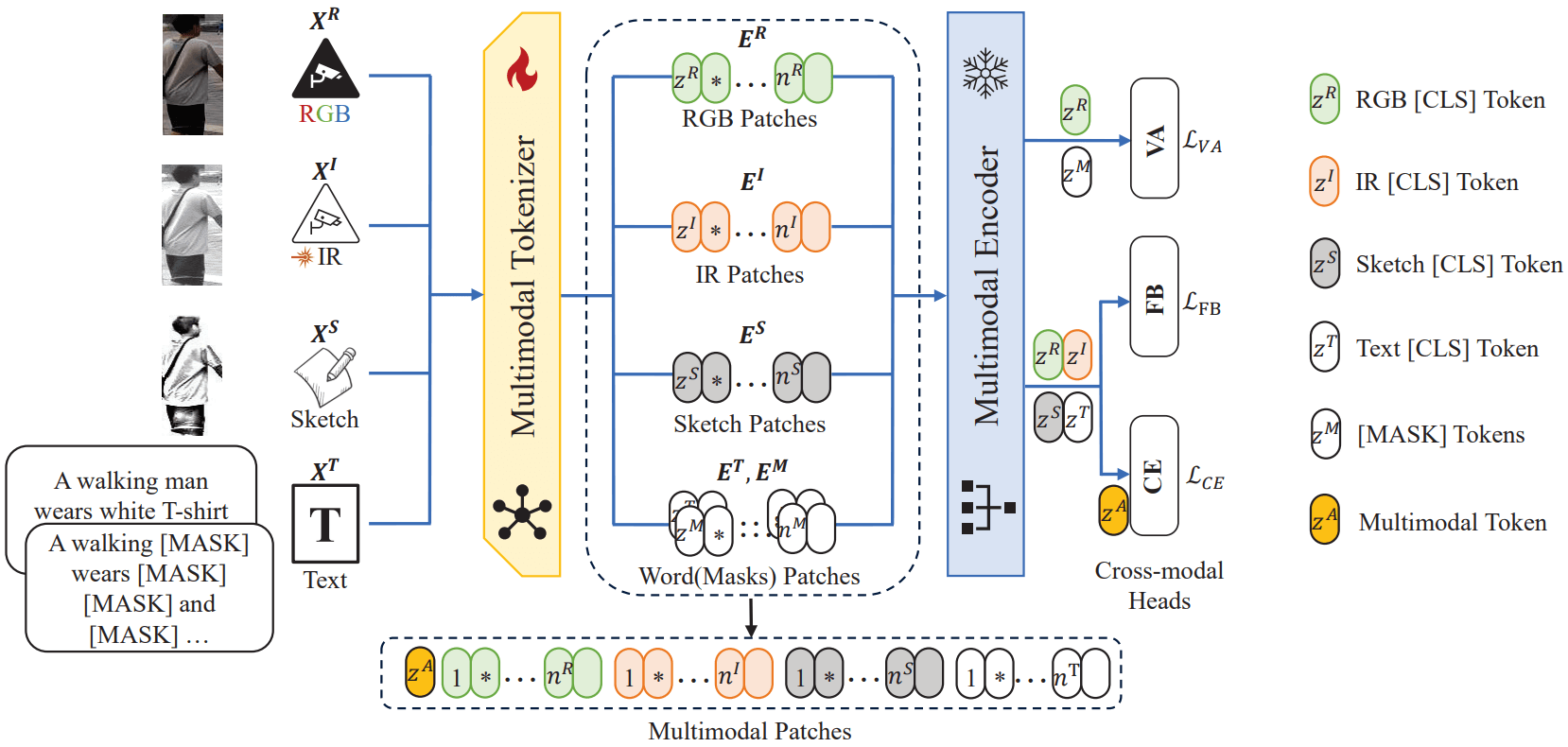
We design a novel multimodal ReID framework, which innovatively integrates a pre-trained foundation model and a multimodal tokenizer into ReID tasks, complemented a missing modality synthesis strategy, and three cross-modal heads to learn a unified multimodal model. (RGB-Sketch-IR-Text)
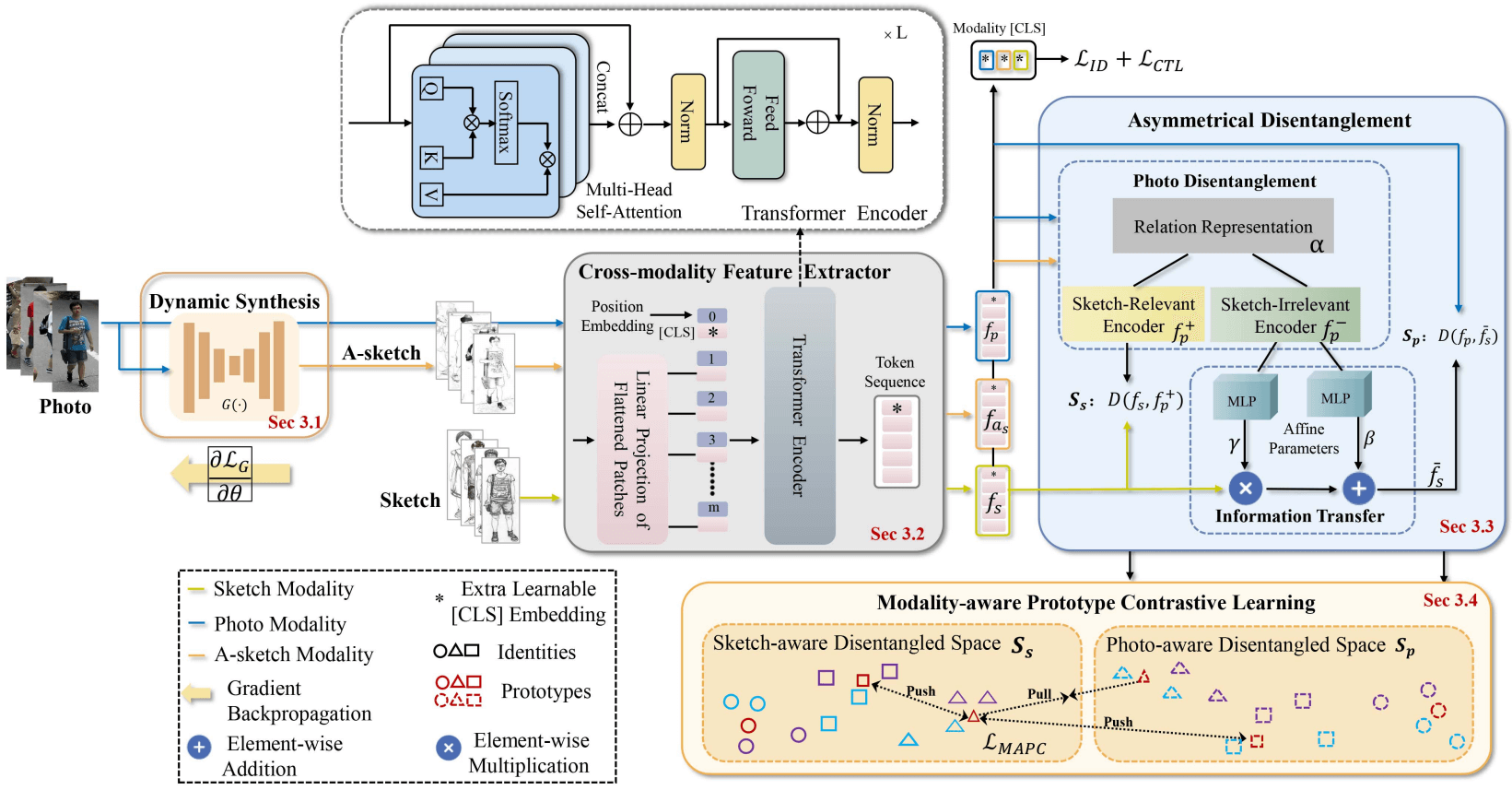
We propose a novel information-aligned transformer framework (SketchTrans+) with disentangled prototype learning to handle modality differences for sketch-photo recognition and re-identification. (RGB-Sketch)
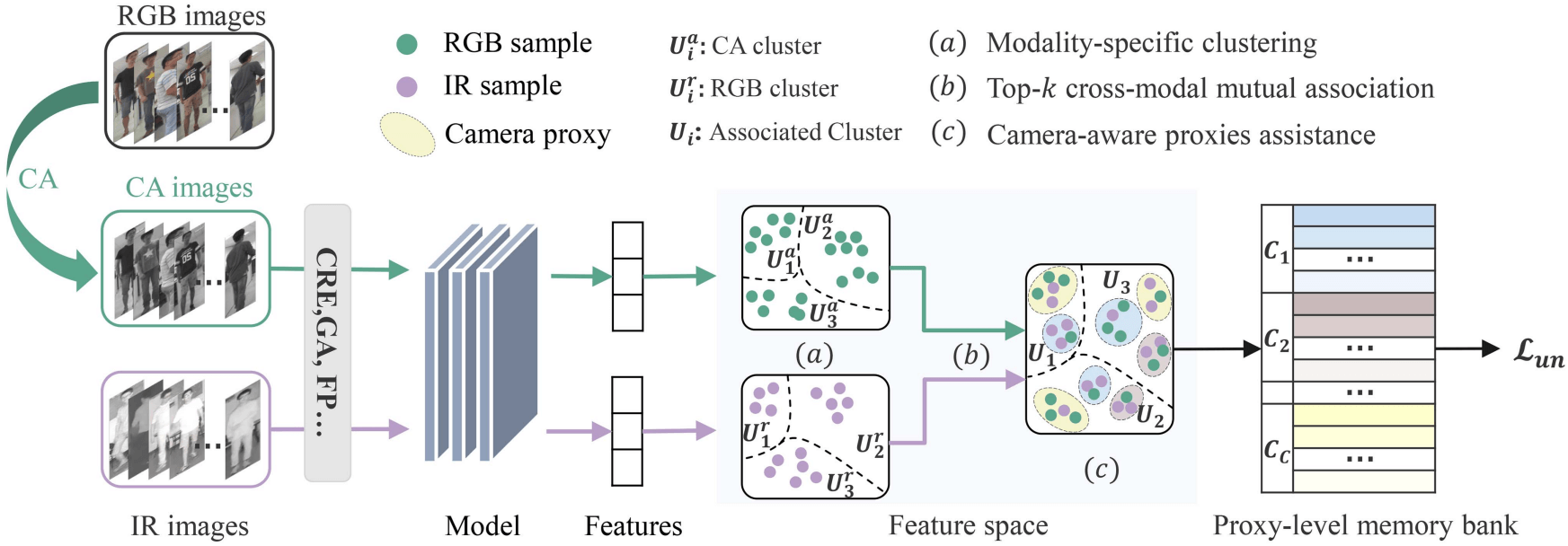
We propose an unsupervised augmentation association baseline, which effectively estimates the cross-modality labels with modality-specific clustering and cross-modal mutual association. It verifies the effectiveness and application for unsupervised VI-ReID. (RGB-IR)
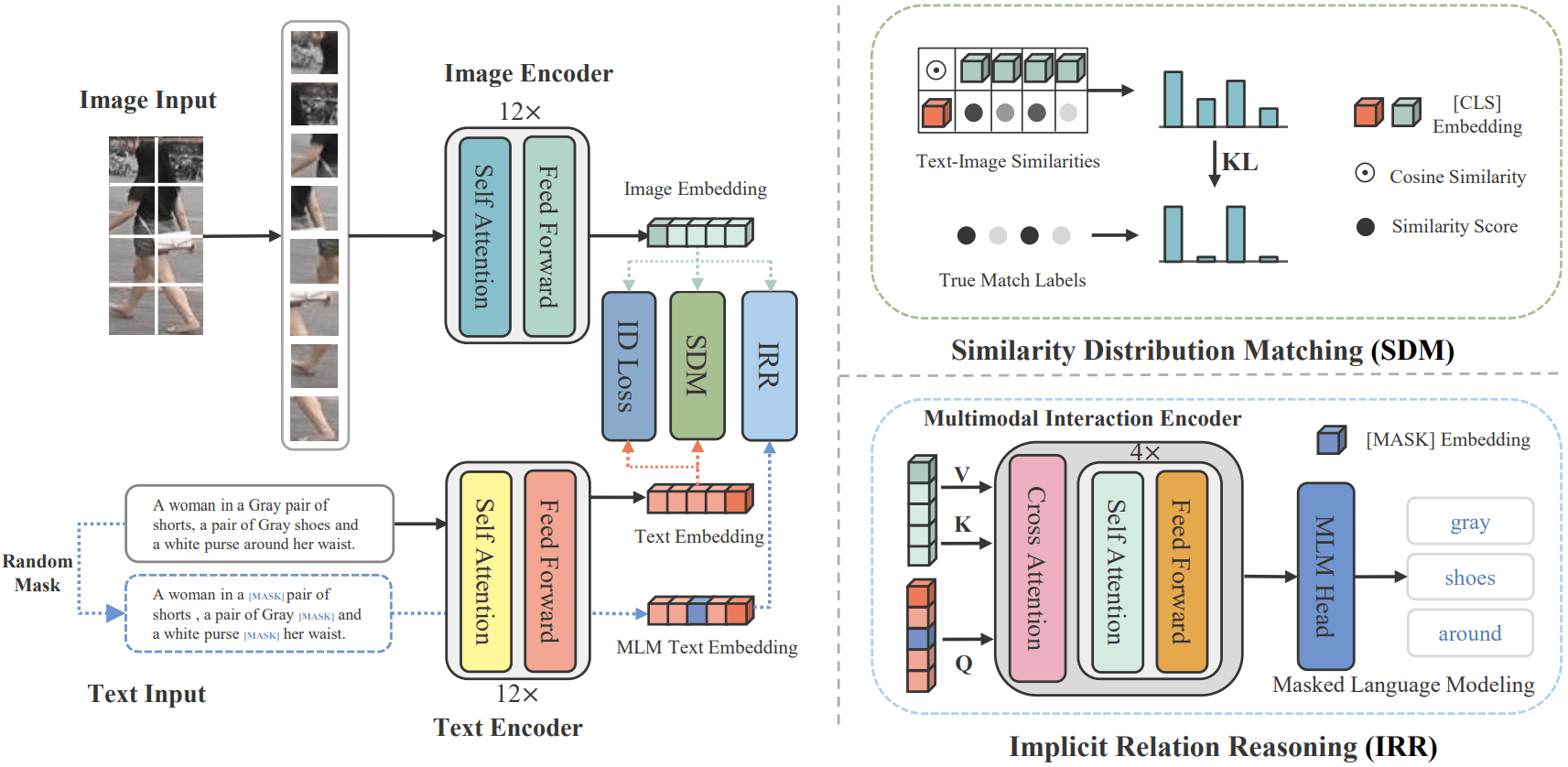
We present IRRA: a cross-modal Implicit Relation Reasoning and Aligning framework that learns relations between local visual-textual tokens and enhances global image-text matching without requiring additional prior supervision. (RGB-Text)
Highlight: Large-Scale Dataset
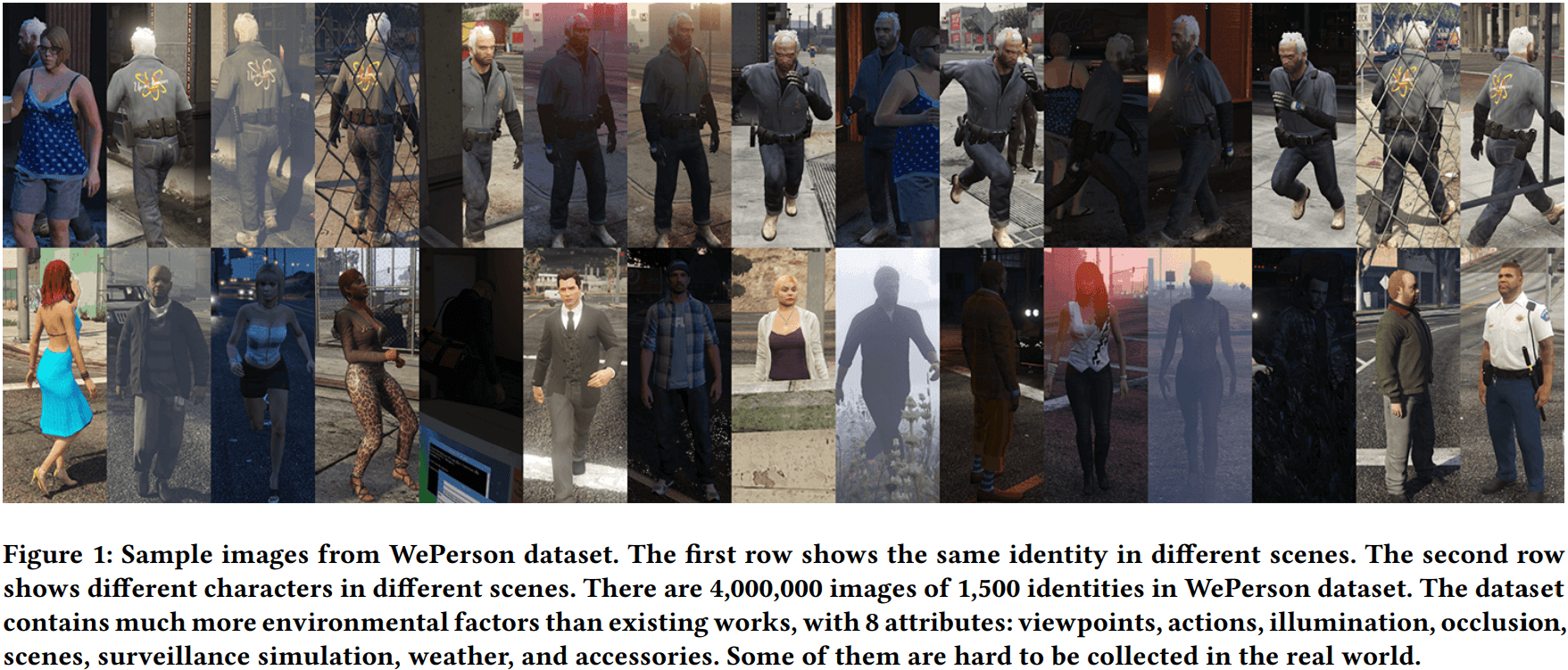
This is the first large-scale synthesized Re-ID dataset that considers various weather effects. It allows factor-by-factor dissection for the domain generalizable feature learning, which is important for Re-ID model deployment under wild application scenarios.
Highlight: Privacy-Preserving ReID
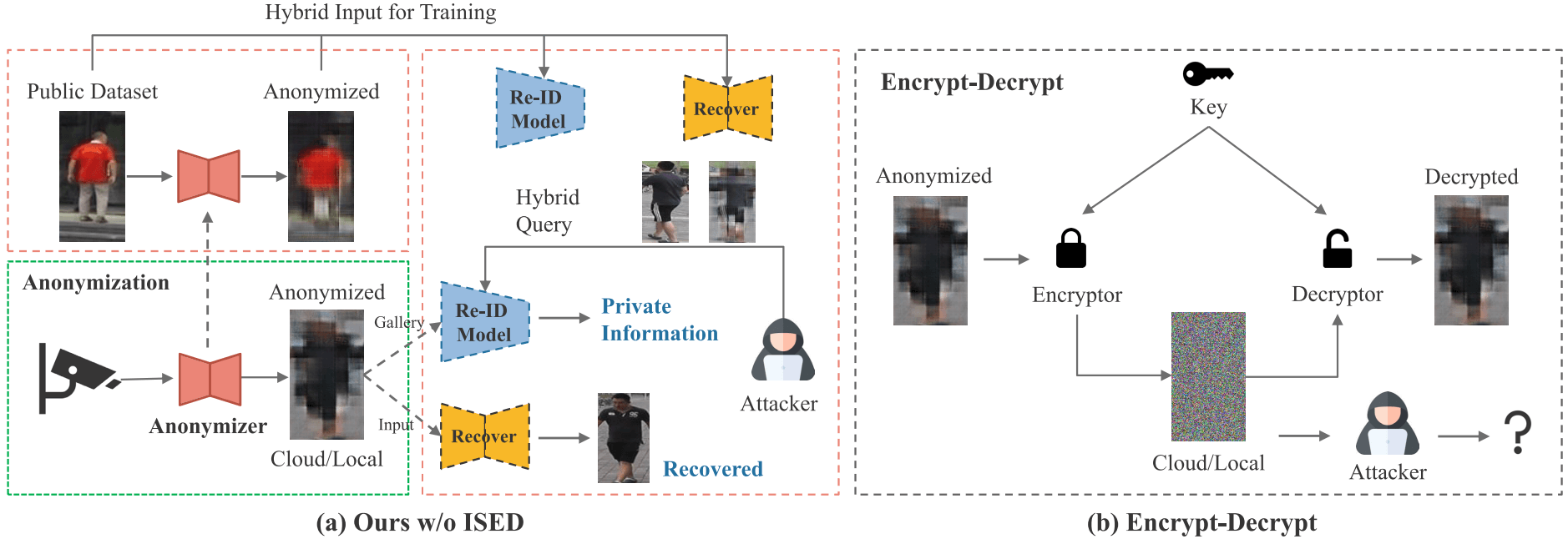
We introduce the Identity-Specific Encrypt-Decrypt (ISED) architecture to deal with the risks posed by model attacks for enhanced security. The ISED encrypts the anonymized images with random deviations based on specific keys assigned to each identity. It effectively protects sensitive data within the original images, rendering them computationally inaccessible to potential attackers and effectively preventing model attacks.

We are the first to explore the privacy-utility trade-off for pedestrian images from a Re-ID perspective, in which anonymized images cannot be recognized by third parties, but are recoverable for authorized users and suitable for person re-identification research.